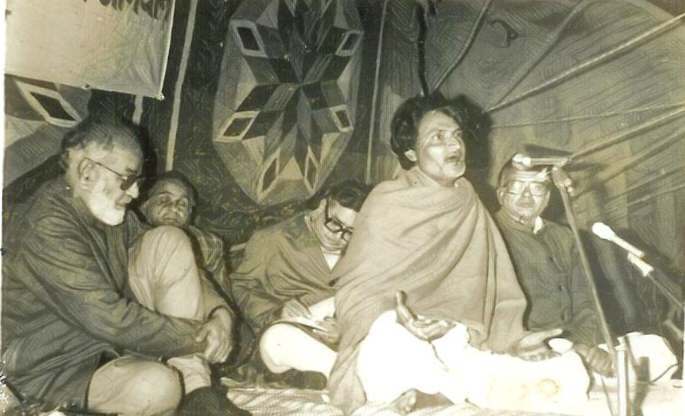Hailing from Bihar, India, Dinesh Bhramar is a distinguished poet who excels in Hindi and Bhojpuri. He is widely acclaimed for his pioneering efforts in introducing the Ghazal and Ruba’i genres into Bhojpuri literature, earning him the recognition of the literary community.
Early Life and Education
Bhramar, a distinguished intellectual, was brought into existence in the year 1939, in the small township of Bagaha, located in undivided Champaran, Bihar, during the colonial era of British India. He was fortunate to be born to Pt. Gunjeshwari Pathak, a luminary of Sanskrit literature and an esteemed patron of the classical arts. Bhramar’s thirst for knowledge led him to attain his undergraduate degree in Hindi literature from the prestigious Patna University in the year 1961.
Career
Bhramar, a seasoned Hindi Literature scholar, has taught as a lecturer at M.J.K College, Bettiah during the academic year 1961-1962. Following this, he worked as a reader at Tata Workers College, Jamshedpur from 1962 to 1966. During his career, Bhramar has graced the stage with some of the most celebrated Hindi poets such as Ramdhari Singh Dinkar, Ajneya, Gopal Singh Nepali, Janki Ballabh Shastri, Nida Fazli, Bashir Badr, and many more. Harivansh Rai Bachchan and Nazir Banarsi have praised his poetic works, some of which have been featured in ‘Navgeet Saptdasak,’ edited by Rajendra Prasad Singh, and ‘Dharati Se Judkar,’ edited by Satyanarayan. Despite his literary excellence, Bhramar has only published one book, ‘Geet Mere Swara Tumhare,’ in 1961, which remains his only exception.
Apart from his literary works, Bhramar has been actively involved in various literary movements and has organized multiple Kavi sammelans, Mushairas, and other literary and cultural events in and around Champaran district for several decades.
Awards and recognition
Bhramar has been recognized with several awards for his contributions to Hindi literature, including the Gopal Singh Nepali Samman in 2011, Bazme Adab in 1999, Lok Shikar Samman in 1998, Champaran Ratna in 1993, and Sahitya Saurabh Samman in 1972.

